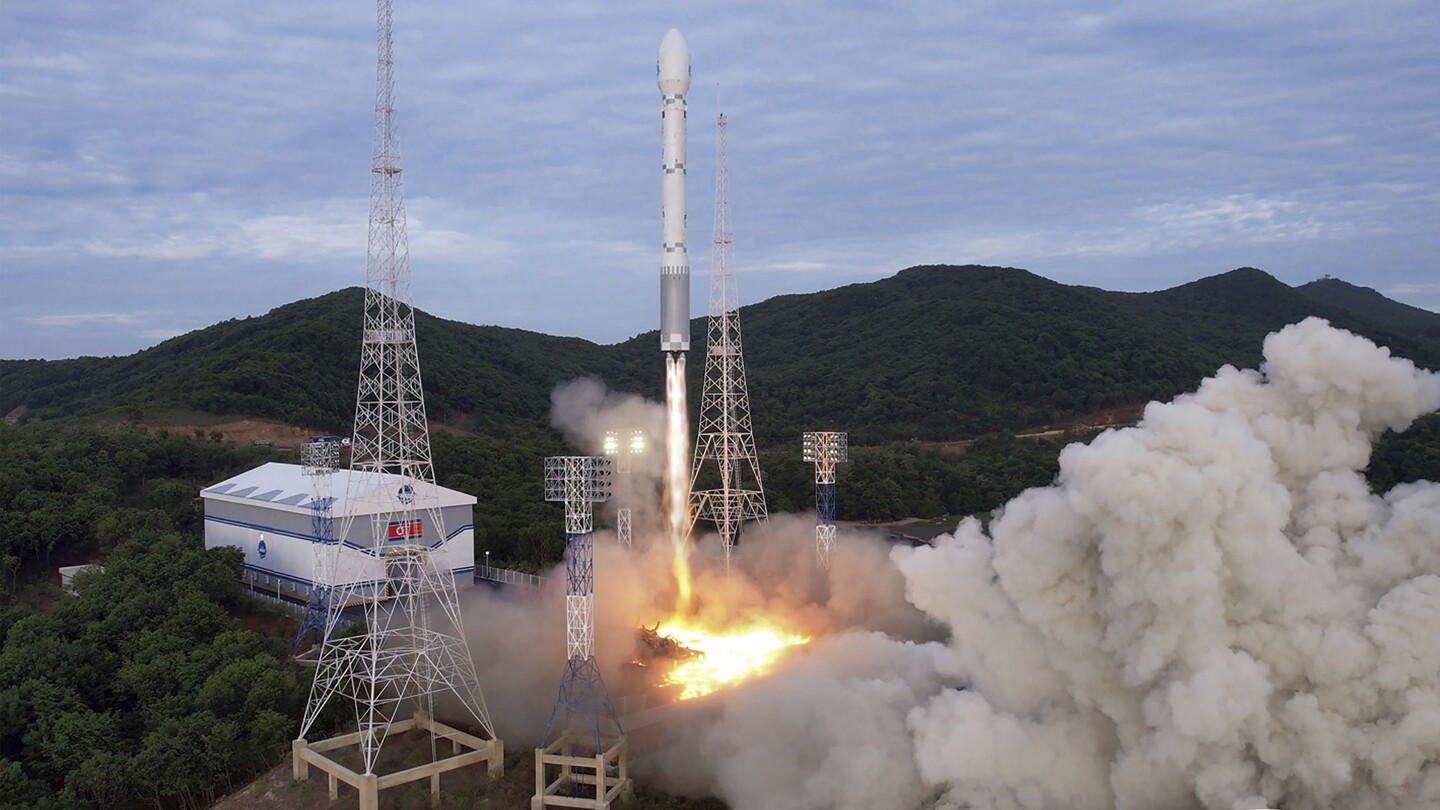SEOUL, South Korea (AP) — North Korea has told Japan it plans to launch a satellite in the coming days, possibly a second try to put a military spy satellite into orbit, Japanese media said Tuesday.
In late May, North Korea tried to launch its first spy satellite, but the rocket carrying the satellite plunged into the sea soon after liftoff. North Korea vowed to make a second attempt after studying what went wrong with the first launch.
Kyodo News cited Japan’s coast guard as reporting it was notified that North Korea intends to launch a satellite between Thursday and Aug. 31. Kyodo said the plan is believed to be the North’s retry of a military reconnaissance satellite launch.
Japanese Prime Minister Fumio Kishida instructed related government agencies to analyze the plan as much as possible and coordinate with the United States and South Korea to urge Pyongyang not to carry out the launch, Kyodo said.
Japan’s coast guard said it was notified that North Korea would designate three maritime danger zones — two to the west of the Korean Peninsula and the third to the east of the Philippines island of Luzon. The three are outside Japan’s exclusive economic zone.
The North’s reported launch plan comes a day after the U.S. and South Korean militaries kicked off annual military exercises that North Korea has called a rehearsal for invasion.
The 11-day “Ulchi Freedom Shield” drills are computer-simulated command post training. During this year’s training period, the allies also plan more than 30 field training exercises.
This month’s drills come after the leaders of the U.S., South Korea and Japan met for their first stand-alone trilateral summit at Camp David on Friday and agreed on a set of steps to increase their defense cooperation to deal with North Korea’s increasing nuclear and military threats.
North Korea’s state media warned Tuesday that its rivals’ drills are deepening the danger of a nuclear war on the Korean Peninsula.
“If the agreements fabricated at the Camp David Resort are additionally put into practice in the war drill involving human and material resources of the U.S. and other hostile forces and even the vassal forces, the possibility of outbreak of a thermonuclear war on the Korean Peninsula will become more realistic,” the North’s official Korean Central News Agency said.
It said the current, prevailing situation is compelling North Korea to take “offensive, overwhelming” steps, but didn’t elaborate.
On Monday, KCNA said leader Kim Jong Un had watched the test launches of strategic cruise missiles and underscored the need to bolster efforts to modernize naval weapons systems.
South Korea’s spy agency said last week that North Korea was taking steps needed for the test flights of intercontinental ballistic missiles and shorter-range nuclear-capable missiles as well as a spy satellite launch.
A spy satellite is among an array of high-tech weapons systems North Korea’s leaaer has publicly vowed to acquire as he looks to expand his nuclear arsenal.
The United States and its allies condemned the North’s first spy satellite launch for raising tensions and violating U.N. Security Council resolutions that ban the country from engaging in ballistic launches.
The failed launch in May also caused security jitters in the region, with South Korea and Japan briefly warning people in some areas to take shelter.

